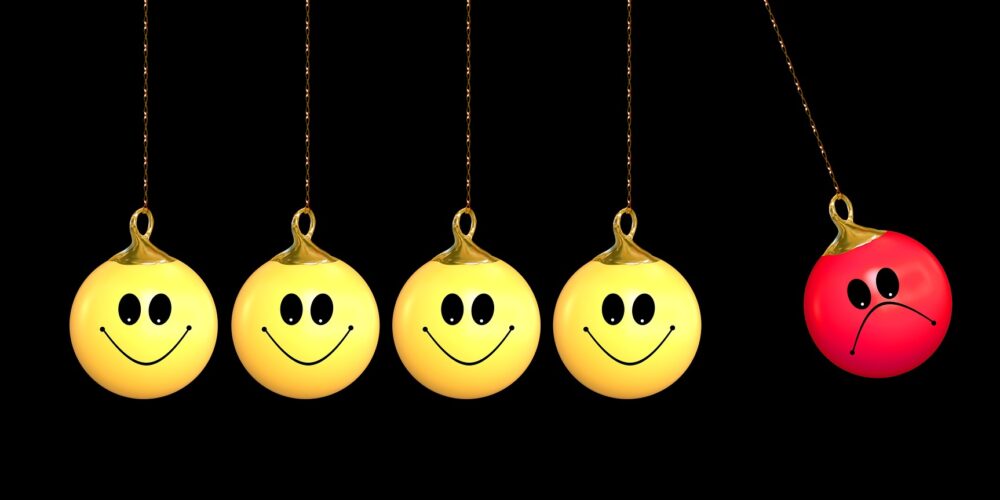A culture of service is a huge business advantage

A recent experience at a hotel made me pause and reflect.
I had looked over the wide array of desserts available in the lunch buffet, and chosen a nice looking mousse in a long-stemmed glass. After carrying the sweet dish back to my table, I noticed that the dessert spoon already laid out there was too wide to fit into the narrow cup. I should have looked around while at the buffet for the longer, thinner spoons.
As I was pushing my chair back to return to the buffet, a restaurant supervisor appeared at my shoulder, offering exactly the spoon I needed.
Now that’s good service, I thought. Someone was keeping an eye out for that very eventuality—and was motivated enough to pay attention and go the extra mile. But where does it come from, this attention to detail and this desire to do more, and how is it transmitted to far-flung employees? Those were my thoughts for the rest of that lunch.
There’s no secret to it. Great customer service comes from a great culture of hospitality, a culture that takes the form of daily habits. Outstanding service is not a one-off achievement; it is about excelling on repeat mode. Many employees in many locations, pleasing many customers, in many ways. It is an extremely daunting thing to pull off. Most fail.
Where does such culture come from? Essentially, from leadership. Good culture has many manifestations, but its genesis is simple. It comes from the leaders, present and past. Leaders have to have the service ambition; leaders have to transmit it positively to everyone else; and most importantly, leaders have to role-model the actions. They have to show up and exemplify the culture, every day.
First, a high standard must be set—we will be and do all the following things with customers. We will be especially helpful, and we will do more than is expected of us. We will create memorable moments for our customers—and do it year in, year out.
It takes guts and ambition—and a bit of madness—to set such a standard in the first place. But merely stating a standard is nothing—the true achievement lies in meeting it. Most hotel chains—and most large businesses—purport to have high customer-service standards, but fall well short of meeting them, on average. How then do we deliver the standard, across thousands of employees?
What is needed is a self-reinforcing culture. You train and motivate a core group of employees to the hilt, and get them to train the rest. But a training programme is, by itself, also nothing. The impact must be felt not in training, but in real life with real customers. In my experience, the best such training is done on the job, in a special way.
The best way for hotels—and many other businesses with many daily customer interactions—is the player-coach model. Invest in frontline supervisors who serve customers, but also keep an eye on proceedings. These folks are there to coach the younger staff—in real time, as events unfold. They correct service errors; they step in to show how something should actually be done; they act as role models. In this way, the day-to-day reinforcement of culture is achieved. Gently, unobtrusively, but repeatedly.
Consistently good customer service, once achieved, is a remarkable strength to have in a business. For one thing, it is very difficult to copy. Culture has so many inter-linked causes that you can’t just poach individuals or even teams, and import great service. I have seen this fail many times, and is akin to trying to transplant an alien organ into a body not able to receive it. It also takes a long time to embed culture properly in any organization—there are no overnight successes, no matter how expensive your cultural change project, or how glitzy your official relaunch.
Being able to offer difficult-to-copy customer experience bestows another advantage: it builds emotional bonds with your customers, bonds that can protect you against well-heeled competitors. You may have the money, but if I have the culture and service and emotional bonding, I can stay in the game for longer.
It’s never perfect, mind. Lapses will often occur and so they must, in any endeavour involving human beings. That’s not the point. The real game is in the trying—the commitment to meet the set standard as many times as possible. It is also in the recovery—the bouncing back from failures, the making of amends, the learning from experiences. Unless we are very vigilant, entropy will occur: standards will slip, and the old ways will be forgotten.
The hotel I began today’s column with was the Kigali Serena in Rwanda. Serena Hotels have, for the longest time, had a deep reputation for friendly and helpful service. But where did it originate? Join me in appreciating the achievement of Mahmud Jan Mohamed. He has just retired from the helm of Serena Hotels, and for decades was the driving force behind the much-applauded service culture. He set the example and delivered the standard, through others. He has personally mentored a whole posse of managers with similar attributes—and that’s a great legacy to be going home with.
(Sunday Nation, 10 September 2023)

Buy Sunny Bindra's new book
The X in CX
here »
Popular Posts
- Keep you, youAugust 17, 2025
- Bruise, mend, continueAugust 31, 2025
- Some lives are lived on the peripheryAugust 3, 2025
- To stay the same—change!August 24, 2025
- The grace of the giverJuly 27, 2025















